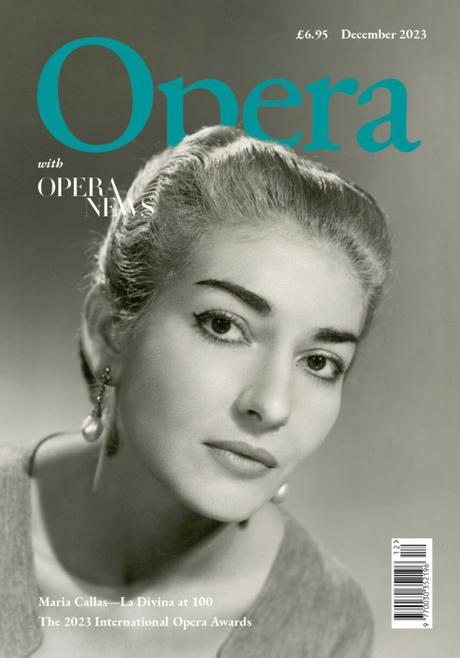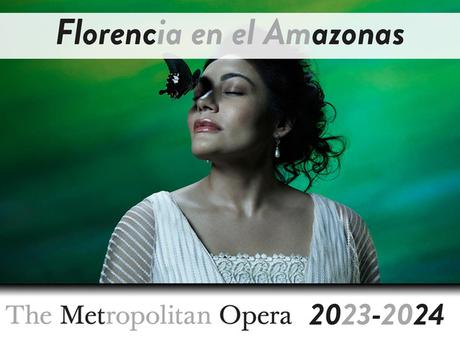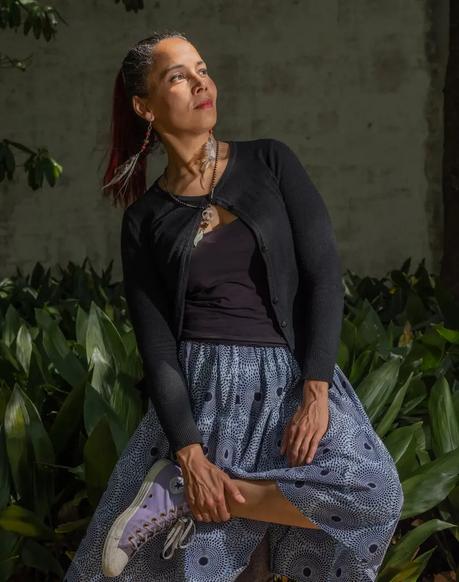
The Inimitable Bob Dylan in the 1960s
Look Back in AnguishThere's an old Bob Dylan song that, to my mind, captures the essence of what opera, and specifically what New York's Metropolitan Opera, have been raging about of late: "For the times they are a-changin'."
How right Dylan was! Too many mishaps, too many missteps, far too many missed opportunities and false starts. And how many supposedly "bold" projections were undertaken that could have ended in near-financial disaster?
To put it plainly, readers were informed of major cutbacks in personnel - presumably to the folding of the company's decades long monthly Opera News. Yes, it quite literally folded, right into the pages of the British publication Opera - and BADLY, we might add! Who does one complain to about that? Bonnie Prince Charlie? Oh, excuse me, your Highness: King Charles III? Tell me?
From a formerly People-sized, tell-all survey of Met Opera productions, artists, and radio transmissions to a Baedeker-style guidebook with reduced dimensions and typeset. The monthly Opera is, well, veddy British in layout, approach, taste, and - let's face it - outlook and sentiments. Restraint as we know it, in this competitive scenario, is hardly the word. Better yet, when the Brits have something to say, they spell it out. Loudly and clearly.
The introductory December 2023 issue, for example, spends quality time on the cover subject: the late, great diva par excellence, the inimitable Maria Callas. Not that she's unworthy of lavish treatment. Quite the opposite! I was wondering when somebody, somewhere would get around to devoting an entire issue to this too-marvelous-for-words artist. One whose life and art, like that of Puccini's fictional diva Floria Tosca (a role the Greek American native made virtually her own), has been so transformative for singers, both young and old, male and female.
Ah, what a marvelous play Callas' life and times would have made! Oh, wait! Didn't Terrence McNally, the noted American author and playwright, write one titled Master Class, a 1995 fictional stage work concerning La Divina's vocal and acting classes at the Juilliard School of Music? I remembered that Tyne Daly, from the Cagney & Lacey police series, did a marvelously camp, over-the-top recreation of Madame Callas, the terror of budding starlets, a "monster in residence." That was the diva's "dark side."

Ms. Daly wasn't the only actor to have taken up the challenge of portraying the tyrannical singer- cum-vocal coach: enter the likes of Zoe Caldwell, Dixie Carter, Patti LuPone, Faye Dunaway, and Audra McDonald (Audra McDonald? No, she played second soprano Sharon Graham). There was also the late Rio-born television and cinema personality Marília Pêra, who did such a wonderful job in a range of biographical stage portraits, including those of Carmen Miranda and Coco Chanel.
The time and effort that Opera magazine spent on this one artist alone were, to my mind, decidedly worthwhile. And the inserted synopses of upcoming live radio transmissions of Met Opera broadcasts were most welcome indeed. Still, the focus remained on Europe and with Great Britain, if truth be told, where we learn that fellow opera buffs abroad are having their own issues (mostly of a financial nature) with presenting and performing opera, one of the world's oldest and most expensive art forms.
But let's face facts, shall we, and bring the focus back to our shores. Mostly, to more disheartening news. Not just to the wretchedness of the singing which, in my operagoing experience, has been going downhill for some time and borders on the woefully inadequate (and far below the standards of yore), but to the matter of our own city's radio station, The Classical Station WCPE.
To wit, the startling announcement that certain operas with "questionable" and/or "inappropriate" subject matter, due to their alleged "adult themes and harsh language" (oh me, oh my!), would not be broadcast this season.
What's that you say? Inappropriate? Harsh language? Since when has opera been inappropriate? And how would they know WHAT subject matters have "adult themes and harsh language," especially since most operas are sung in a foreign tongue?
I wondered aloud about this aspect. In fact, while waiting for the radio transmission of Benjamin Britten's Peter Grimes this past May 27, 2023 (one of the few standard works that's given in Ye Olde Queen's English), I was startled, yes, startled to hear the opening strains of Wagner's Siegfried. Did the Met Opera suddenly change gears in late season, or was I imagining things?
No, it was true. The radio station had substituted an old studio recording of Siegfried in place of the scheduled Peter Grimes broadcast. Now why would they do that? Had the lead singer taken ill? Heck, I was eager to hear young British tenor Allan Clayton's take on the crusty Mr. Grimes, another of those troubled individuals charged with violent behavior against young boys. Clayton had sung the lead role of Hamlet in Brett Dean's modernesque adaptation of the Shakespeare play. But that was on June 4, 2022.
Did Nicholas Carter, the scheduled maestro for Peter Grimes, bow out for health or other reasons? There was no on-air announcement about it. Did the entire cast come down with the flu, or worse? Was there a COVID-19 outbreak in the audience? No advance warning, no explanation, no word from anyone, anywhere. It left me perplexed and most listeners high and dry.
I had been looking forward to hearing Peter Grimes, which hadn't been done at the Met in over a decade, if not more. During the recent lockdown, fans of Met Opera on Demand were privy to free access to many of the company's Live in HD transmissions, especially of director John Doyle's Peter Grimes and the classic John Dexter production of Britten's Billy Budd, which I simply adored (see my review: https://josmarlopes.wordpress.com/2021/07/18/stream-for-your-supper-after-dinner-treats-with-met-opera-on-demand-part-six-those-rarest-of-operatic-birds-take-2/).
As Prince Hamlet would say, "O, that this too, too solid flesh would melt." And oh, that this Met Opera season would, too, turn out better than the last one. The new series of broadcasts are set to start on December 9 with the first hearing of Mexican composer Daniel Catán's Florencia en el Amazonas, to be sung in Spanish (also a first for the company) and as a radio premiere.
It would have made sense for the Met to have performed the work in Brazilian Portuguese, seeing as the story is about a former diva (ah, now there's the Callas angle we've been looking for) who returns to her native soil of Brazil (in the Amazon region) in order to meet up with her former lover, a butterfly expert. On the way, the little steamship Florencia embarked on almost goes under, due to a powerful rainstorm. It seems that nature (and by implication, financial hardship) has a way of upsetting one's best-laid plans.
Florencia en el Amazonas is a bit of a throwback to a dreamier kind of work, the music bursting with numerous references to post-Romantic composers Puccini, Korngold, Richard Strauss, Ravel, Satie, and Debussy. There's even a hint or two of Polish modernist Karol Szymanowski in the lush scoring. With all that going for it, the New York Times gave the opera and Mary Zimmerman's production a tepid review. To each his own!

I find it fascinating that, just as the curtain at Florencia's premiere was about to go up, a voice in the audience shouted the phrase, "¡Viva la opera en español!" Meaning: "Long live opera in Spanish!" A fitting tribute, I thought, for the occasion.
Singing in the vernacular used to be (note the phrase, "used to be") the accepted norm at the turn of the last century and beyond. It's an historical fact that most versions of the standard and non-standard repertoire, among them Puccini's output, many by Verdi, others by Wagner and Strauss (both Johann and Richard), Rossini and Donizetti as well, were invariably given in translation, that is, in the language of the people in their various countries.
What's happened in the interim? For one thing, the internationalization of singers, conductors, stage designers, directors, producers, artisans, craftspeople, and others associated with the art form. It's one thing to learn an opera in its original language, oftentimes different from one's OWN tongue; but quite another to re-learn a work in yet ANOTHER language (i.e., English). For another, the absence of homegrown talent and the importing of more foreign-born aspirants, especially from the Balkans and other Slavic nations (although some critics would claim the opposite is true, in that we export native-English speakers abroad to our loss).
There's the pervasiveness of supertitles, surtitles, and subtitles, which no doubt has facilitated one's understanding of the text (a godsend to the uninitiated). But again - in our humble opinion - it's now become this ever-present "necessary evil"; something that conspires to divert our attention from the stage area where attention should be paid. A "dumbing down," if you must know, of how NOT to listen to opera.
Some would argue that it's a minor inconvenience, while others are more critical of the setup. "Do your homework," goes the outcry. "Read the libretto, learn the text, listen to the music, hear the singers, follow the action in the score," etc., and so forth. That's easy enough to say. Try doing those on a regular basis and in our "time is money" economy. Any way you look at it, it's a challenge to one's patience.
Of course, you would think, with the easier accessibility of the internet via WiFi, laptops, iPhones, iPads, YouTube, podcasts, SiriusXM, online streaming, and other means, that people's hesitancy about going to or listening to the opera would have been overcome by now.
Hah! You haven't been paying attention.
Start Spreading the NewsThe problem with the Met Opera's broadcast Florencia en el Amazonas - that's to say, of its being given in the original Spanish or any other tongue - lies not with language per se but rather with the work's ethos and how it fits into today's issues. In fact, a different type of storm was about to envelop the Met, but in another form entirely. It would be a storm of controversy.
According to the New York Times, along with Opera magazine itself through their NEWSDESK column, North Carolina radio station WCPE's general manager Deborah S. Proctor eventually "backed down" from an earlier decision not to air certain contemporary works.
The radio station's ire was turned on such so-called "inappropriate" fare as the Jake Heggie and Terrence McNally (our old friend) collaboration Dead Man Walking whose themes encompass capital punishment and lethal injection; Terence Blanchard's Champion, about closeted gay boxing champ Emile Griffith; Kevin Puts and Greg Pierce's The Hours, based on Michael Cunningham's novel and the 2002 film; Blanchard's Fire Shut Up in My Bones from journalist Charles M. Blow's memoir of his being sexually abused as a child; Anthony and Thulani Davis' X: The Life and Times of Malcolm X, covering similar ground as Spike Lee's 1992 epic Malcolm X about the assassinated civil rights leader; and John Adams' El Niño, an oratorio-like retelling of the Nativity and the Holy Family.
Deemed as acceptable were such standards as Bizet's Carmen, about a flirtatious gypsy who hooks up with a mentally disturbed mama's boy, then a macho bullfighter, and who gets murdered in the end by the mama's boy; and Puccini's last opera Turandot, about an obsessed, man-hating princess who has the nasty habit of beheading her suitors if they fail to answer three riddles; there's also onstage torture and a beloved character's suicide to tide one over.
Bizet's Carmen and Puccini's Turandot? Acceptable, really? How would they know that? One is in French and the other in Italian. You'd have to read the libretto (in English translation, of course), and thoroughly understand the action as outlined in the music and as conveyed by the performance.
So glad that calmer heads have prevailed! And we are especially grateful to and thrilled by one of the more insightful responses to the above outrages.
Enter our own Greensboro native: musician, folk singer, fiddle player, former opera singer (but one who's remained a permanent fan thereof), the talented Ms. Rhiannon Giddens, whose gorgeous timbre and solid grounding in the operatic art have brought smiles of comfort and tears of joy to listeners of her Met Opera podcast Aria Code.

This is what Ms. Giddens had to say about the above-mentioned controversy, gleaned from the online OPERAWIRE website as well as her Instagram post:
"As a North Carolina native with more than a few connections to the wonderful world of opera, I was appalled to hear of your perplexing decision to not broadcast certain of the @metopera 's season this year. The Met broadcasts are the only way many people get to hear the productions, which are situated in New York and priced way out of many people's budgets. Radio is supposed to be egalitarian and an equalizer, not used as a weapon, as you are doing.
"In your letter to listeners, you say that these six operas: 'are written in a non-classical music style (and) have adult themes and language.' I'm sorry Ms. Proctor - are you now saying that you are the arbiter for what is a 'classical' style? Are you saying that your training has left you fit to tell your listeners that Dead Man Walking, literally the most celebrated and performed American opera of the last quarter century, is not written in a 'classical' style?
"You also say: 'We want parents to know that they can leave our station playing for their children because our broadcasts are without mature themes or foul language,' she said. 'We must maintain the trust of listeners.'
"So what you're also saying is that the suicide, murder, rape, orientalism, battlefield violence, smuggling, seduction, and alcoholism, among many other things, that are rife in the operas that you have chosen to broadcast, like Romeo and Juliet, Carmen, La Bohème and La Forza del Destino, is ok just because they are done in another language? Carmen itself was lambasted in Paris society at its premiere by folks like yourself for its immoral and vulgar language, music and story - yet you have not struck it from your list. Un Ballo in Maschera was censored again and again [Author's Note: The story concerns an attempted assassination of the Swedish king], yet there it is, happily present. I guess all of these operas are just fun ditties for you to whistle with total disregard to the content.
"Thanks for being so transparent, I guess! And thanks for protecting our children from the story of a young 15 year old girl, seduced and abandoned by a [naval lieutenant], who then commits suicide after giving birth to their son... No, whoops, that's Madama Butterfly, and you're cool with that one too. Signed, Rhiannon Giddens."
Needless to say, Ms. Giddens raised a number of issues, the primary one being that a four hundred year old art form has as much right to exist as the artists attempting to keep it alive. What nearly happened to some of opera's most famous protagonists could very easily have happened to opera itself. That this did not occur was due primarily to lovers of the form.
But self-destruction is not in the cards, not yet at least! Even if a bold Valkyrie maiden named Brünnhilde had chosen self-immolation as her way to go - still, opera need not go up in flames.
Now I know what happened to that non-existent Peter Grimes broadcast! It makes sense, or rather it doesn't. Regardless, I have to believe that one listener's loss (mine, to be exact) can be opera's gain. And with defenders of the realm such as Rhiannon Giddens fighting for its independence, the battle can still be won: "For the times, they are a-changin'!"
Copyright © 2023 by Josmar F. Lopes
